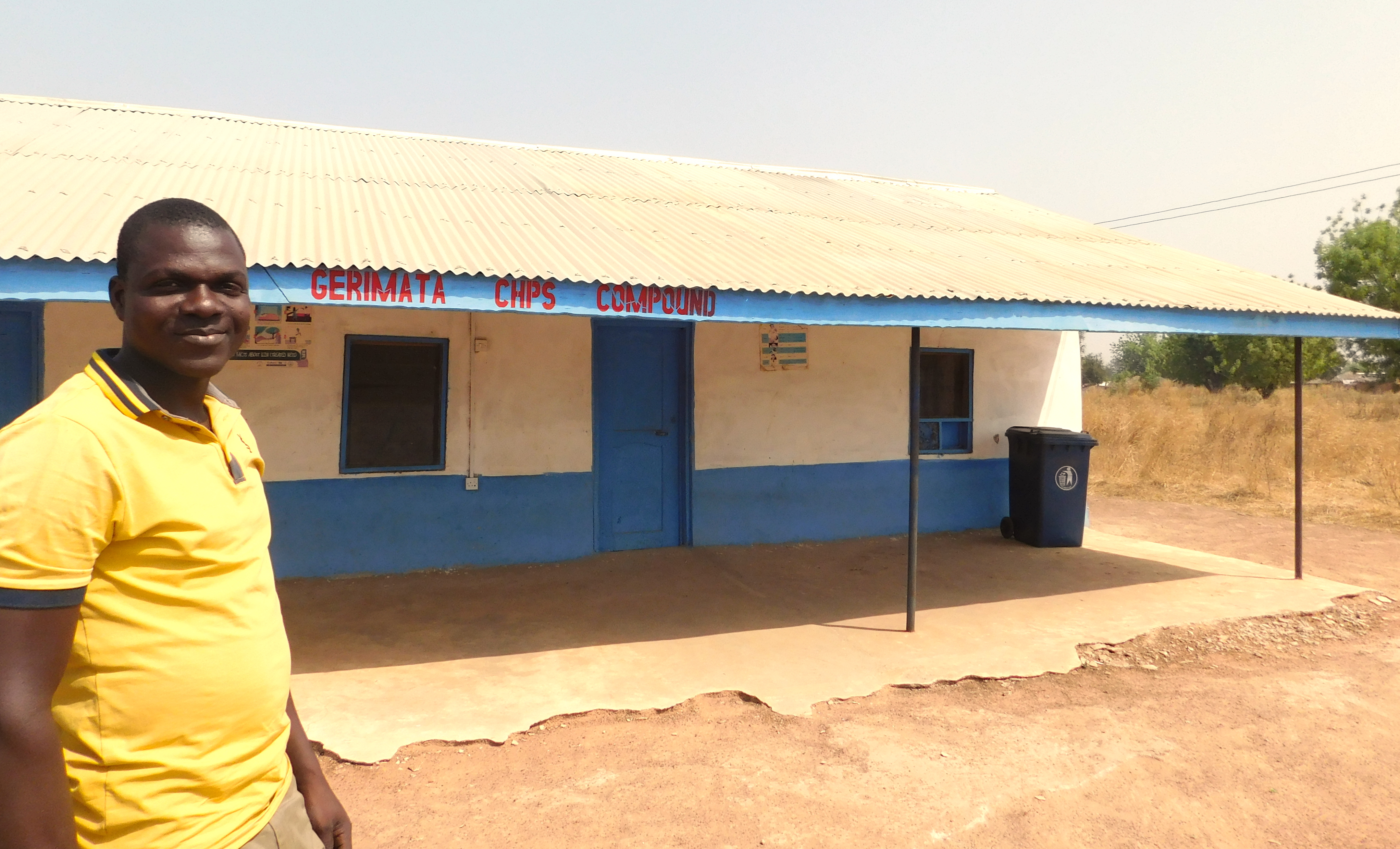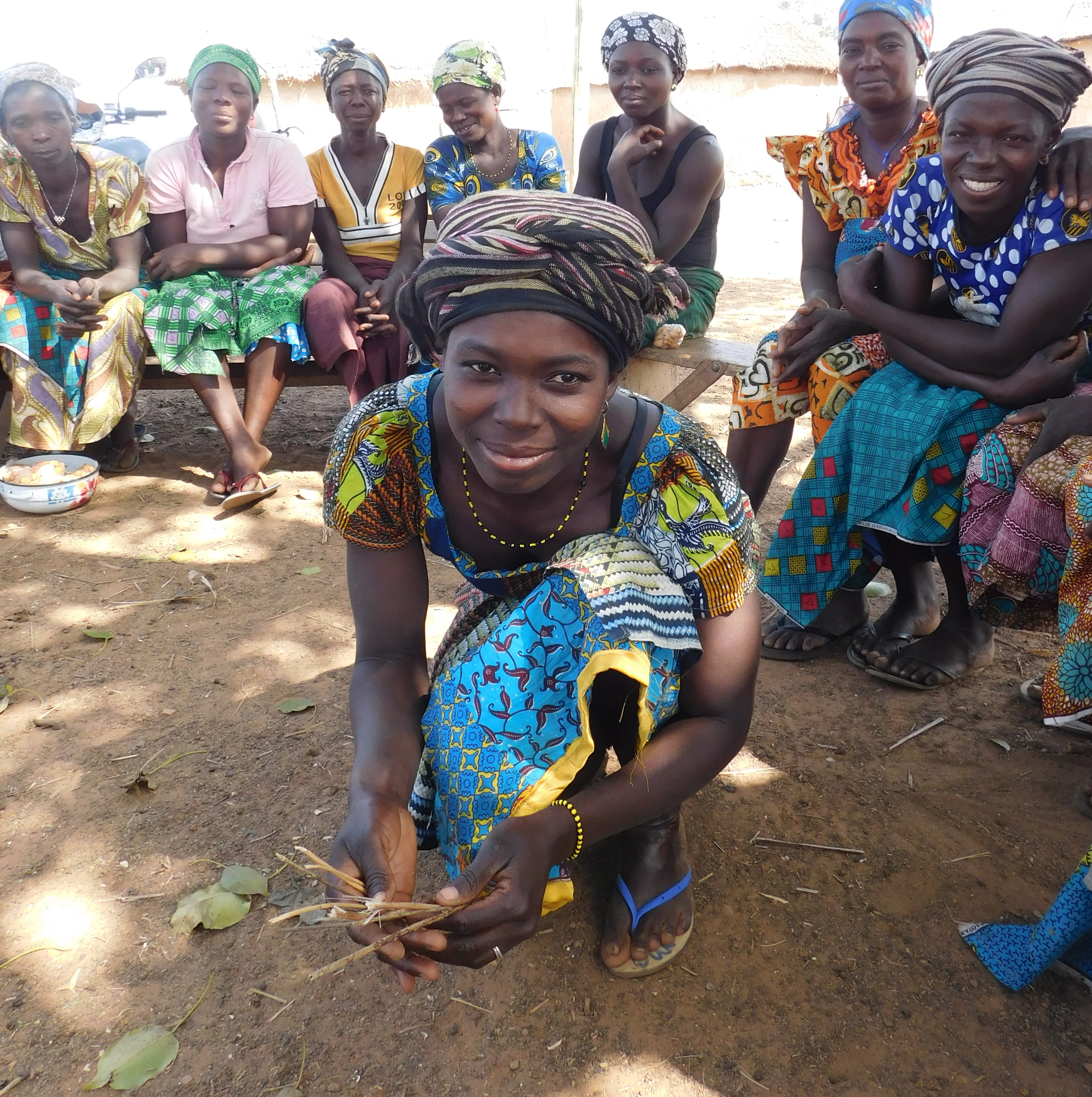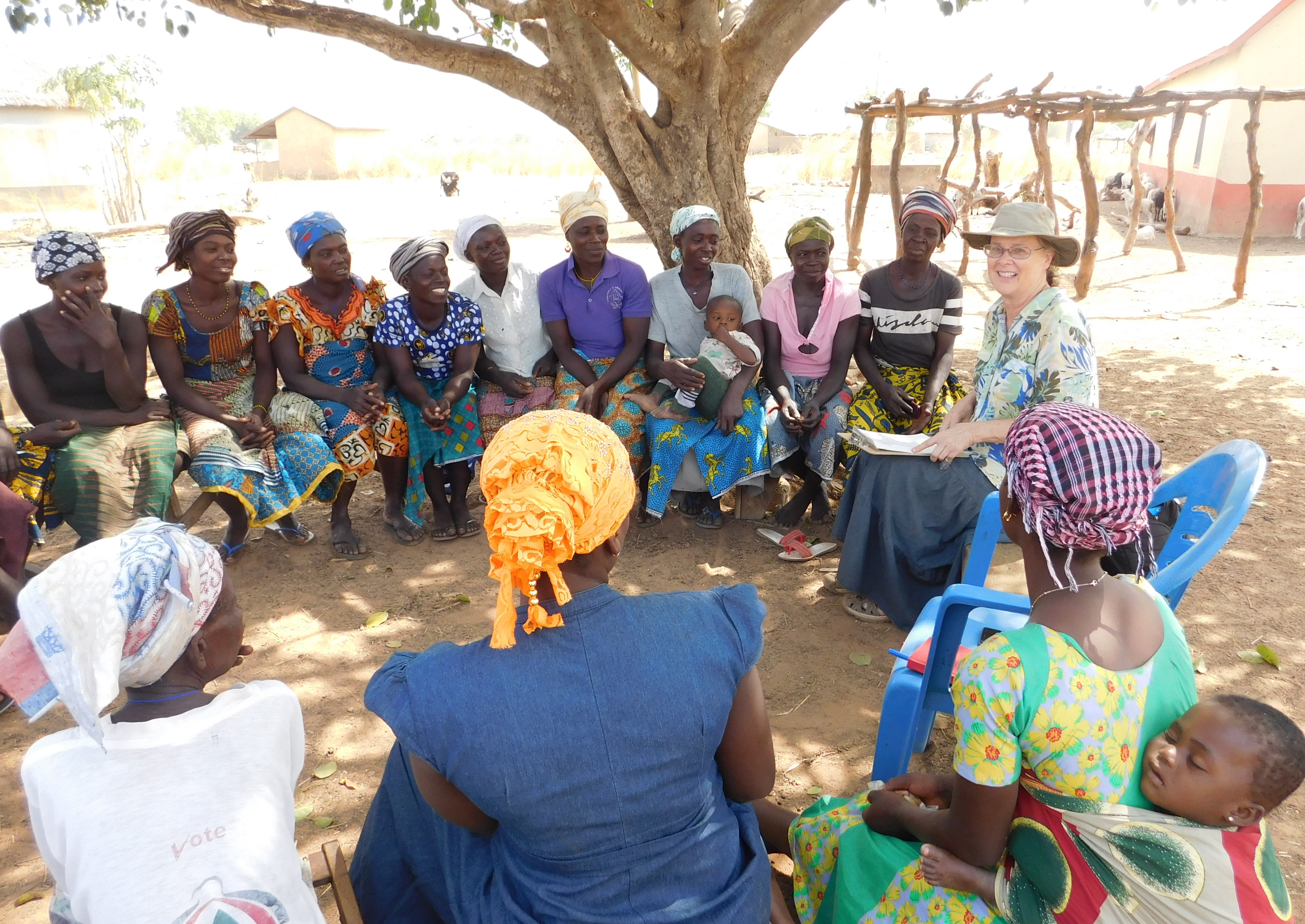A Letter from Ruth Brown, serving in Ghana
February 2019
Write to Ruth Brown
Individuals: Give online to E200528 for Ruth Brown’s sending and support
Congregations: Give to D507542 for Ruth Brown’s sending and support
Churches are asked to send donations through your congregation’s normal receiving site (this is usually your presbytery)
Greetings from northern Ghana!
On a recent Saturday morning, while I was riding to a town meeting, my motorcycle driver turned his head towards me to say, “My mother told me I was afraid of women when I was little. Now, I’m surrounded by them, and I’m finding I enjoy their company!”
When the driver, Isaac, and I arrived in his hometown (about 5 miles east of Saboba), we greeted several of the townswomen, and we all began to pull wooden benches together in a circle for our meeting. The women laughed and pointed at one of their neighbors who was running between the homes, trying to hide, because, they whispered to me, “She is scared of white people!” The fearful yet smiling woman did finally join the group, sitting as far away from me as possible.
One to three days each week, Isaac gives me a ride to his hometown to meet with the residents. This day, after the majority of women, 20 in number, were seated, Isaac invited Yinimoaan, a Muslim woman, to offer a prayer to begin our meeting. Isaac’s main educational message for these women was, “Keep your stored sweet potatoes very dry and in a cool, dark place until you plant them this May.” Isaac had heard that some of the women were watering the tuberous roots they had stored for planting, and he was concerned they would begin to rot.
Isaac’s experience as a professionally trained teacher is obvious as he listens carefully to the women’s concerns and questions them about their experiences. They enjoy the lesson together. The women are as attentive to Isaac as he is to them. He explained to me that his town respects him for graduating from several schools and universities. Isaac, a member of Saboba’s Evangelical Presbyterian Church (EP Church), is now a math and science teacher at Saboba’s EP High School. He returns to his hometown to assist the residents because he loves and enjoys the people and wants to share with them what he has learned.
Isaac’s hometown of 43 homes, 3 churches, 1 nearby mosque, 1 elementary school, and 1 clinic may become a Community Health Education program site (CHE). CHE’s methodology combines the Christian message of loving neighbors with lessons about disease prevention and health promotion. CHE workers go door-to-door in their communities, sharing their faith and praying with family members. During the visit, the CHE workers also observe behavior practices that are healthy and those that may be unhealthy. CHE workers then teach and coach these neighbors, assisting them in making any needed changes to create a healthier environment and lifestyle.
Though CHE is typically known as Community Health Evangelism, we use the word “Education” rather than “Evangelism” as allowed by the CHE methodology for countries with large numbers of people of other faiths. In this town, Muslims and believers of Traditional African Religion outnumber Christians. In our meetings, we address God as “Creator God” or “God of Abraham,” and we tell stories about Jesus and use parables of Jesus. I’m glad that Muslims welcome the stories of Jesus, as he is recognized as a very great prophet in the Islamic faith.
A line from this winter’s Daily Lectionary instructs the work of CHE: “Build up, Build up, Prepare the way, Remove every obstruction from my people’s way” (Isaiah 57:14). The building up of the community by its residents is the work of CHE. Town residents study their neighborhood, looking for resources in the form of talents, training, and expertise among their neighbors, and with these assets, they seek to improve health conditions. They also look at what is blocking their paths to achievement, and work to remove these barriers. The CHE program emphasizes the community’s ownership of all planning for the town’s community health program. Isaac and I are beginning to collect input from residents regarding the town’s health needs.The community’s volunteer health aides who have attended government-led trainings told us, “We do not always clearly understand what the teachers at these trainings are saying. They do not know how to speak our language. We do not know how to write to take notes, so sometimes we do not know what to tell our neighbors when we return home.”
From the town’s water committee members we heard, “World Vision came to make the bore holes, but now 2 of the 3 bore holes are not functioning.”
The nurse at the community health clinic prioritized medication and refrigeration for medication storage as the greatest needs. Malaria is currently the largest reason for clinic visits, and 2 of the 5 regularly prescribed medications for malaria are not available at the clinic.
In addition to the concerns listed above, there are needs for better sanitation, water purification, family planning, prenatal care, childhood and prenatal nutrition, preventing/treating alcohol abuse, and establishing home gardens and composting.
CHE training manuals strongly suggest beginning new CHE programs with towns where motivation for community development is already evident. Isaac’s hometown is motivated. Town residents paid for and constructed their own health center! Do you see the photo on the front of this letter of the beautiful townswomen sitting together? These are the women who built the floor of their health clinic, walking miles to bring sand and water to the building site, then mixing and shoveling the cement into place. They also brought sand to build the town road.
Isaac and I will be presenting our findings about the community to the EP headquarters in Ho along with our request that this community become a CHE program site. The community is positioned geographically as the hub for several other nearby towns. We are hoping that over time and through careful program development, CHE’s love and education will radiate outwards to all these other towns and beyond.
Without your prayers and contributions of support I would not be here to meet the residents of this town and to work alongside them. Thank you for making this work possible.
If you have not yet supported this ministry, please consider making a donation to my sending and support. Descriptions about the work of the E.P. Church and the people of Saboba may be found on the “Ghana Mission Network” Facebook page (facebook.com/groups/1854183154814348/) where I post stories and photos every week. Please email me with your questions, concerns, and ideas.
Together with the residents of northern Ghana, let us build up and prepare the way for abundant life in Christ!
Love and joy to you!
~Ruth
![]() You may freely reuse and distribute this article in its entirety for non-commercial purposes in any medium. Please include author attribution, photography credits, and a link to the original article. This work is licensed under a Creative Commons Attribution-NonCommercial-NoDeratives 4.0 International License.
You may freely reuse and distribute this article in its entirety for non-commercial purposes in any medium. Please include author attribution, photography credits, and a link to the original article. This work is licensed under a Creative Commons Attribution-NonCommercial-NoDeratives 4.0 International License.


